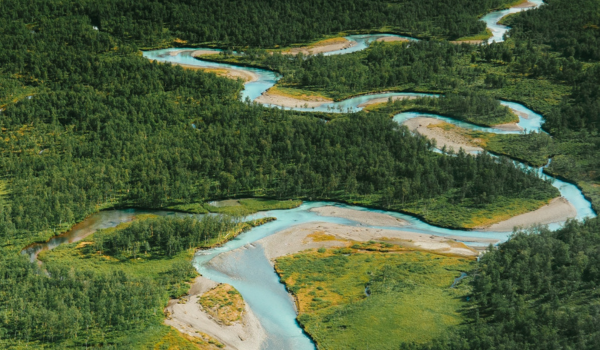GWP is an integral member of the Coalition and has made a commitment under the Water Action Agenda to promote and support transboundary water cooperation at all levels worldwide.
Transboundary waters account for 60 percent of the world’s freshwater flows, with more than 3 billion people depending on them. According to recent reports from UN-Water and the UN Economic Commission for Europe, several challenges in transboundary water management must be addressed. One major challenge is water scarcity caused by climate change, population growth and unsustainable water use. Another challenge is the lack of institutional capacity in some countries to manage transboundary water resources effectively. Addressing these challenges requires coordination between countries while developing effective institutional frameworks and management strategies.

“As a global multistakeholder partnership promoting integrated water resources management, GWP is committed to supporting the development of transboundary agreements, along with the establishment and capacity building of basin organisations”, says GWP’s Chair Pablo Bereciartua. “We are also committed to embedding source-to-sea approaches in our work with transboundary basins and integrating fresh and marine water management. We are delighted to join forces with like-minded partners through the Transboundary Water Cooperation Coalition”.
As announced during the UN 2023 Water Conference at the flagship Coalition event on 23 March, GWP will work towards the establishment of new transboundary river basin organisations and agreements through a multistakeholder partnership approach and regional dialogues. At the regional level, GWP Central America will continue leading the regional multistakeholder dialogue to strengthen cooperation between countries in managing transboundary waters, catalysing actions at the basin level, and establishing communities of practice.
Key action areas of the Coalition’s work will include:
- Taking advantage of the economic, social, environmental and political benefits of transboundary cooperation and building on them to develop sustainable and resilient cooperation, and overcoming bottlenecks towards mutually beneficial outcomes
- Creating economic and political incentives for cooperation
- Improving the governance framework for transboundary water cooperation by developing new or improved agreements between co-riparian states, setting up and increasing the impact and effectiveness of existing basin/aquifer organisations, and fostering accession to the 1992 Water Convention and the 1997 Watercourses Convention
- Strengthening the scientific and information base for decision-making by enhancing monitoring networks, supporting data, information and knowledge generation, and adopting an open data and information exchange policy across actors in transboundary basins/aquifers
- Enhancing capacity to manage shared water resources sustainably by increasing education and training
- Increasing international and national funding for transboundary water cooperation, strengthening the financial resilience of institutionalised cooperation mechanisms for transboundary basins/aquifers and increasing investments in transboundary basins with regional benefits, such as investments in nature-based solutions
- Promoting integrated transboundary water management, including the source-to-sea approach, and including stakeholders, particularly women and youth.
The Transboundary Water Cooperation Coalition is a diverse, multistakeholder coalition of actors made up of the following countries: Chile, Dominican Republic, Estonia, Finland, France, Germany, Hungary, Iraq, Kazakhstan, Morocco, Namibia, The Netherlands, Panama, Senegal, Slovenia, Switzerland, Uganda; the European Union as a regional integration organisation; and the following organisations: ESCWA, Global Environment Facility (GEF), Inter-American Development Bank (IaDB), Organization of American States (OAS), UNCDF, UNDP, UNECE, UNEP, UNESCO, World Bank, Centro Regional para la Gestión de Aguas Subterráneas en América Latina y el Caribe (CeReGAS), EcoPeace Middle East, Geneva Water Hub, Global Water Partnership (GWP), International Groundwater Resources Assessment Centre (IGRAC), IHE Delft Institute for Water Education, International Network of Basin Organizations (INBO), IUCN, Stockholm International Water Institute (SIWI), University of Kinshasa, Water Diplomacy Center/Jordan University of Science and Technology.

